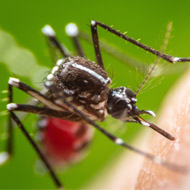
Online tool will help countries track and monitor alien species
A new global list of invasive species has been compiled by researchers at the IUCN Invasive Species Specialist Group (ISSG).
The Global Register of Introduced and Invasive Species (GRIIS) is the first open-access, evidence-based information platform for invasive species that threaten the survival of mammals, birds and plants across the world.
The Register was conceived and conceptualised at the University of Auckland, where the New Zealand office of the ISSG is hosted. It was announced in the journal Scientific Data.
“This has been a huge project and has involved the work of many scientists and government staff from many countries around the world,” said Shyama Pagad, from the University's School of Biological Sciences and lead author of the Register. “It is vital to helping countries track and monitor how invasive species are impacting biodiversity and fragile ecosystems and the main pathways for invasive species.”
The Register contains more than 8944 evidence-based records and some 40,000 alien and invasive species records that are in the process of being verified. It includes 202 country and territory sub-lists, with global coverage planned for later this year
Piero Genovesi, chair of the ISSG, told The Guardian that biological invasions are increasing in all regions and are likely to accelerate as a result of climate change.
“With this paper we want to show the rigour of our approach because this information will affect trade relations and other government policies,” he said.



 The Veterinary Medicines Directorate (VMD) is inviting applications from veterinary students to attend a one-week extramural studies (EMS) placement in July 2026.
The Veterinary Medicines Directorate (VMD) is inviting applications from veterinary students to attend a one-week extramural studies (EMS) placement in July 2026.